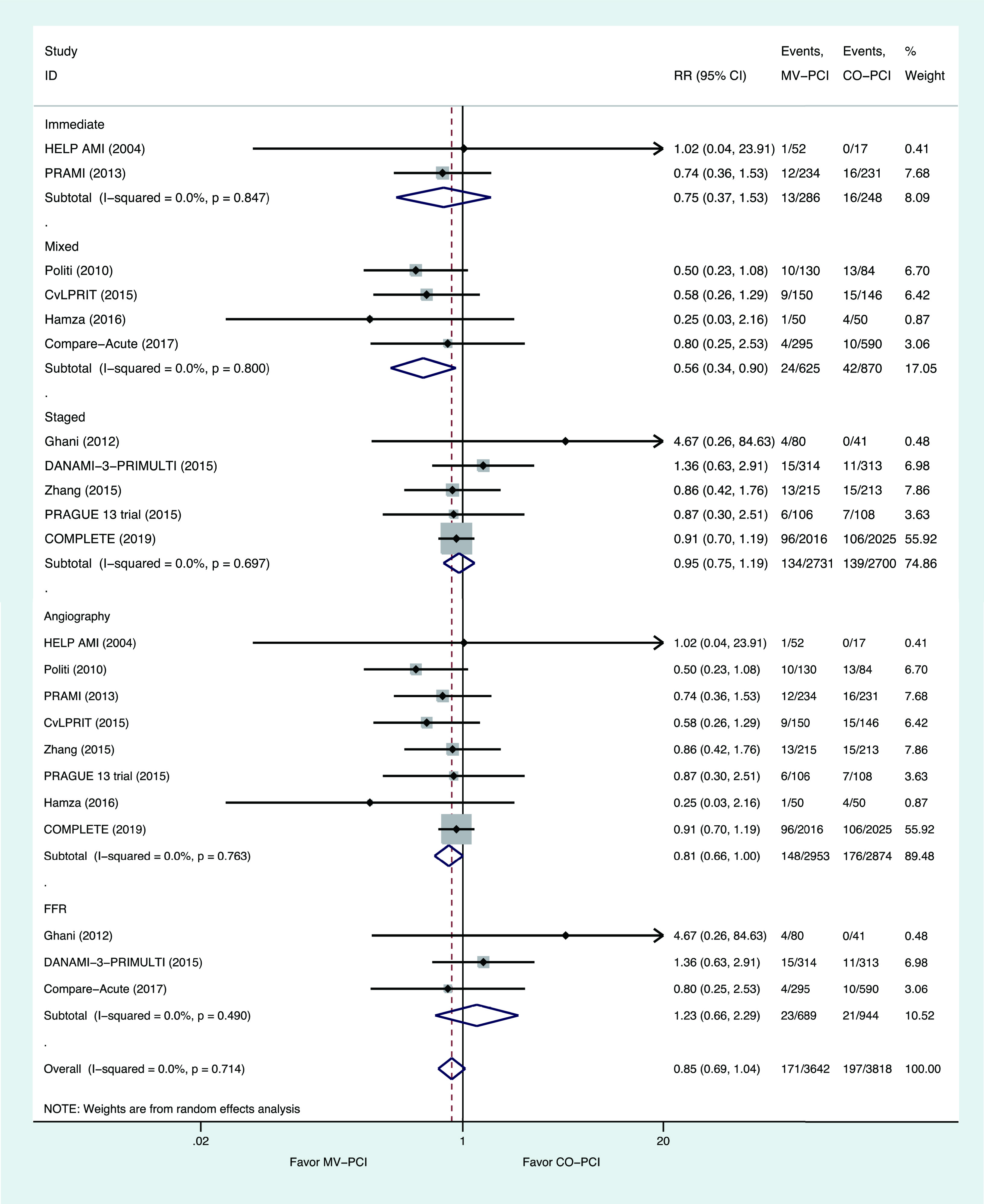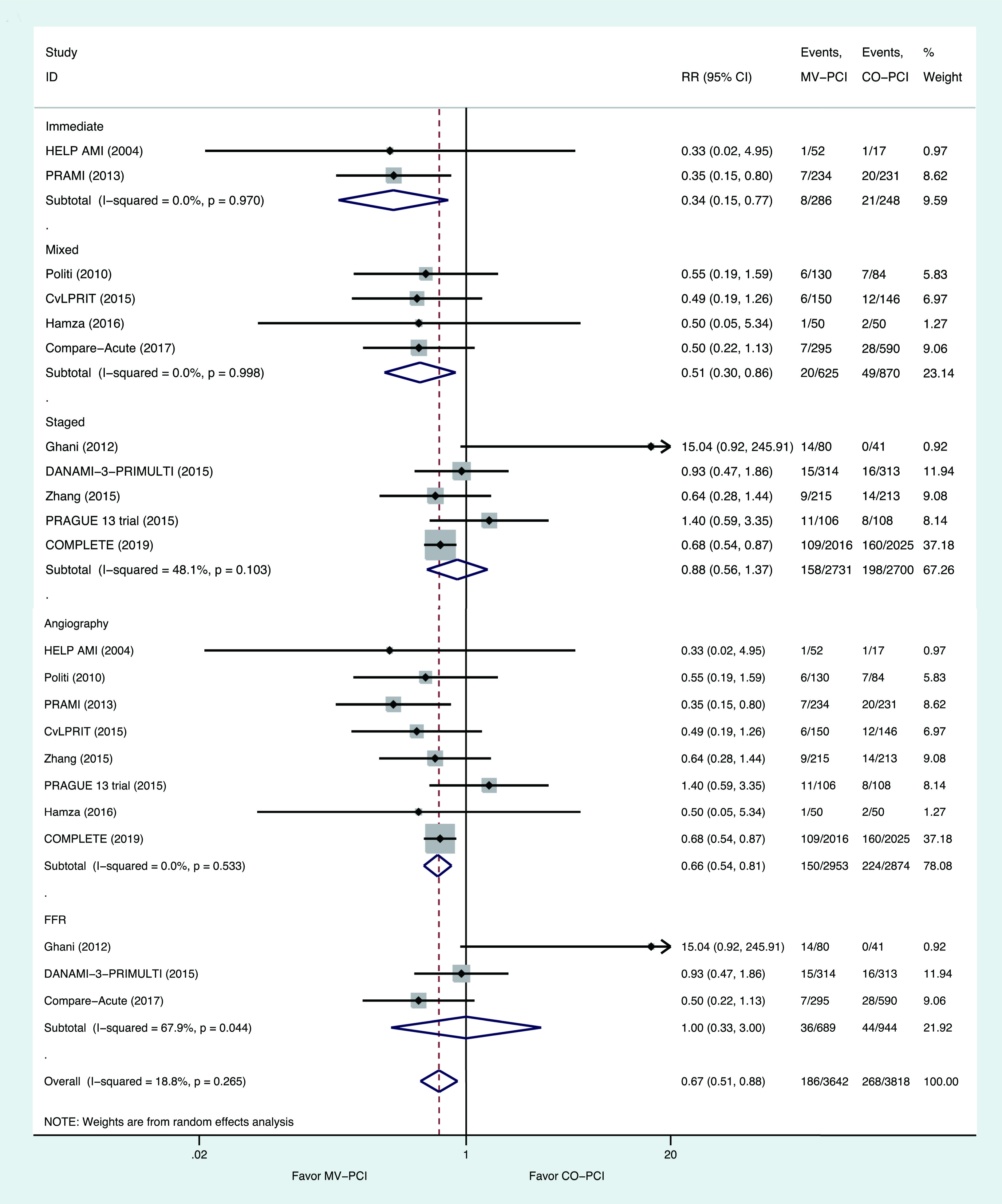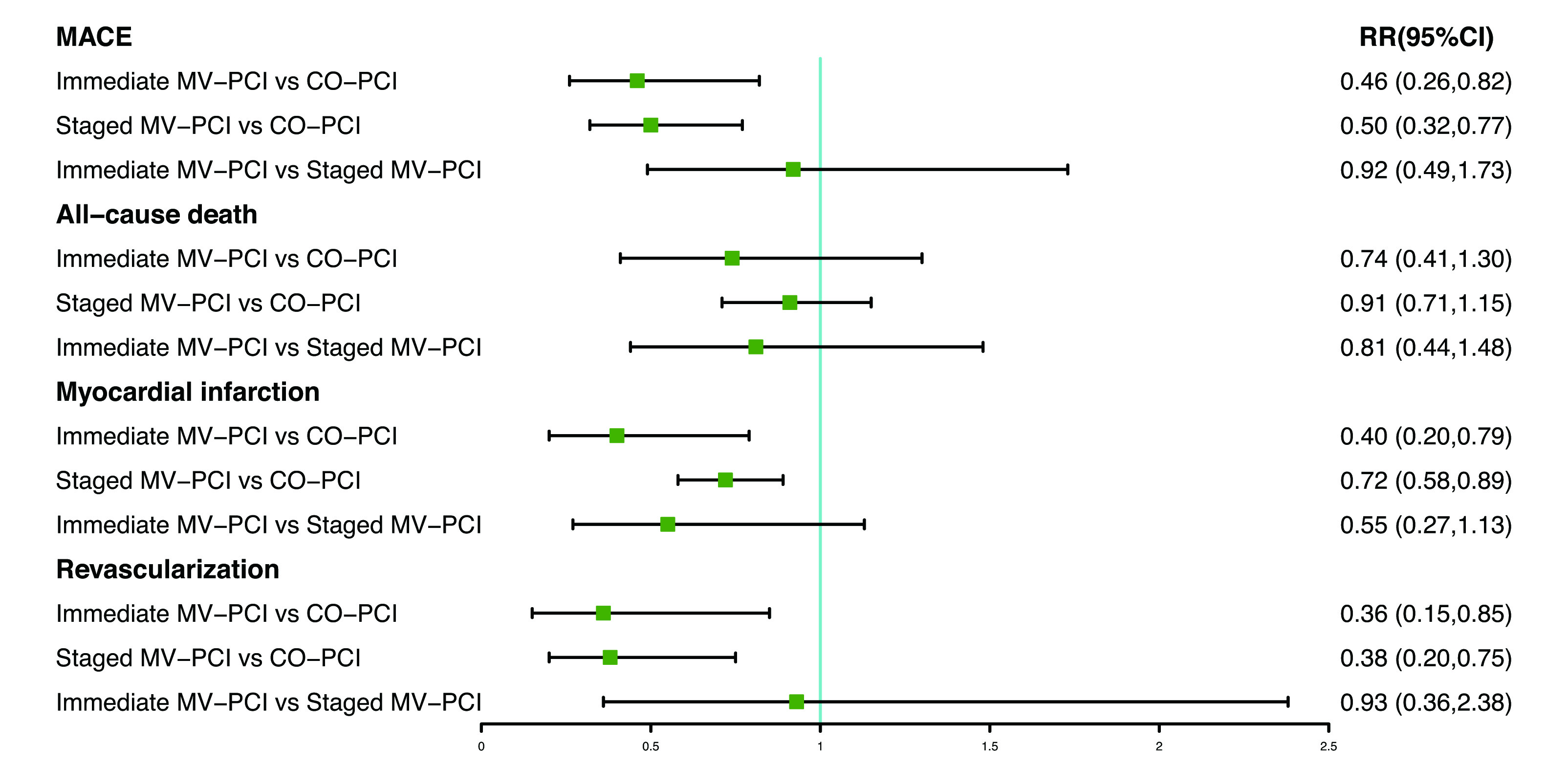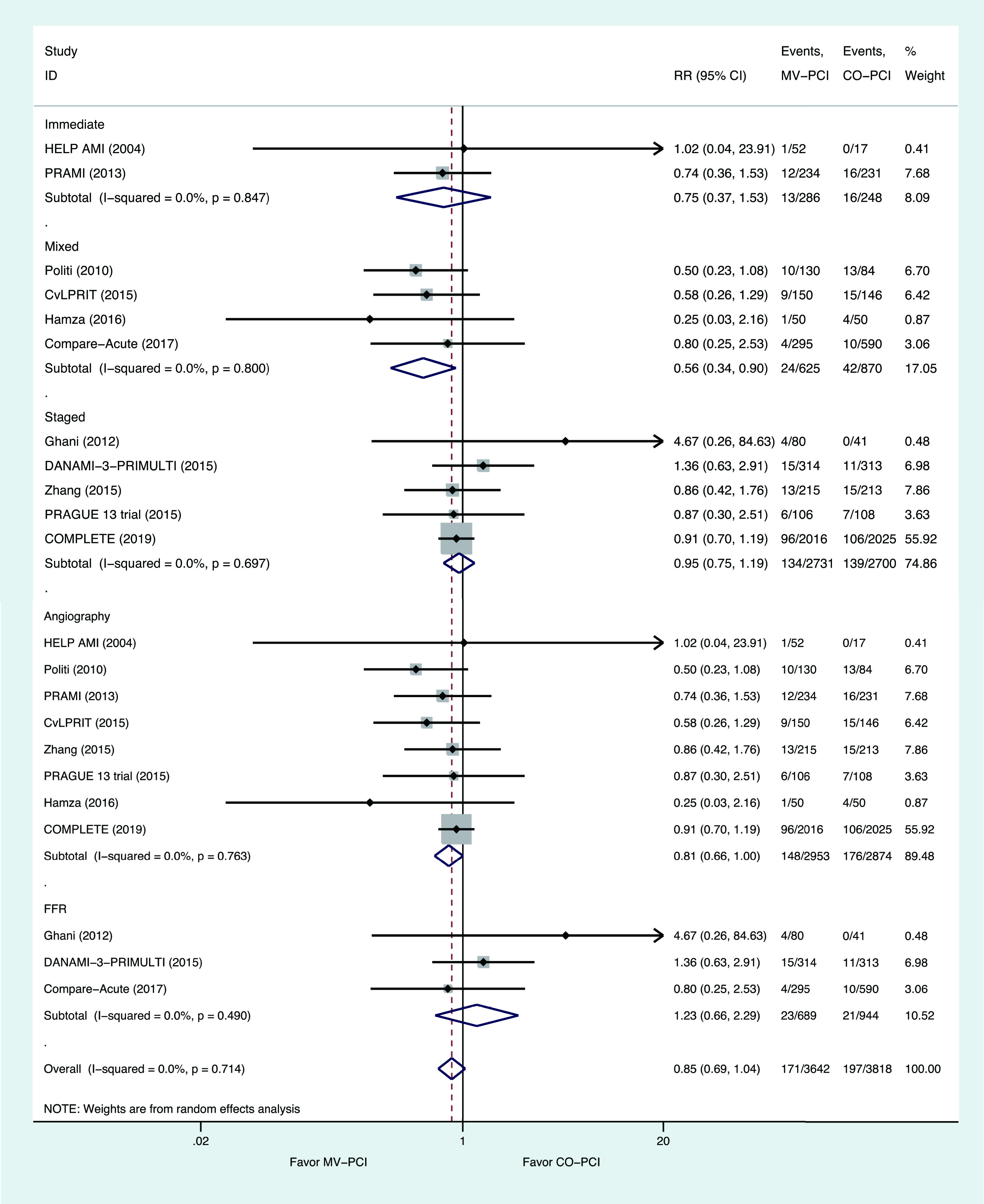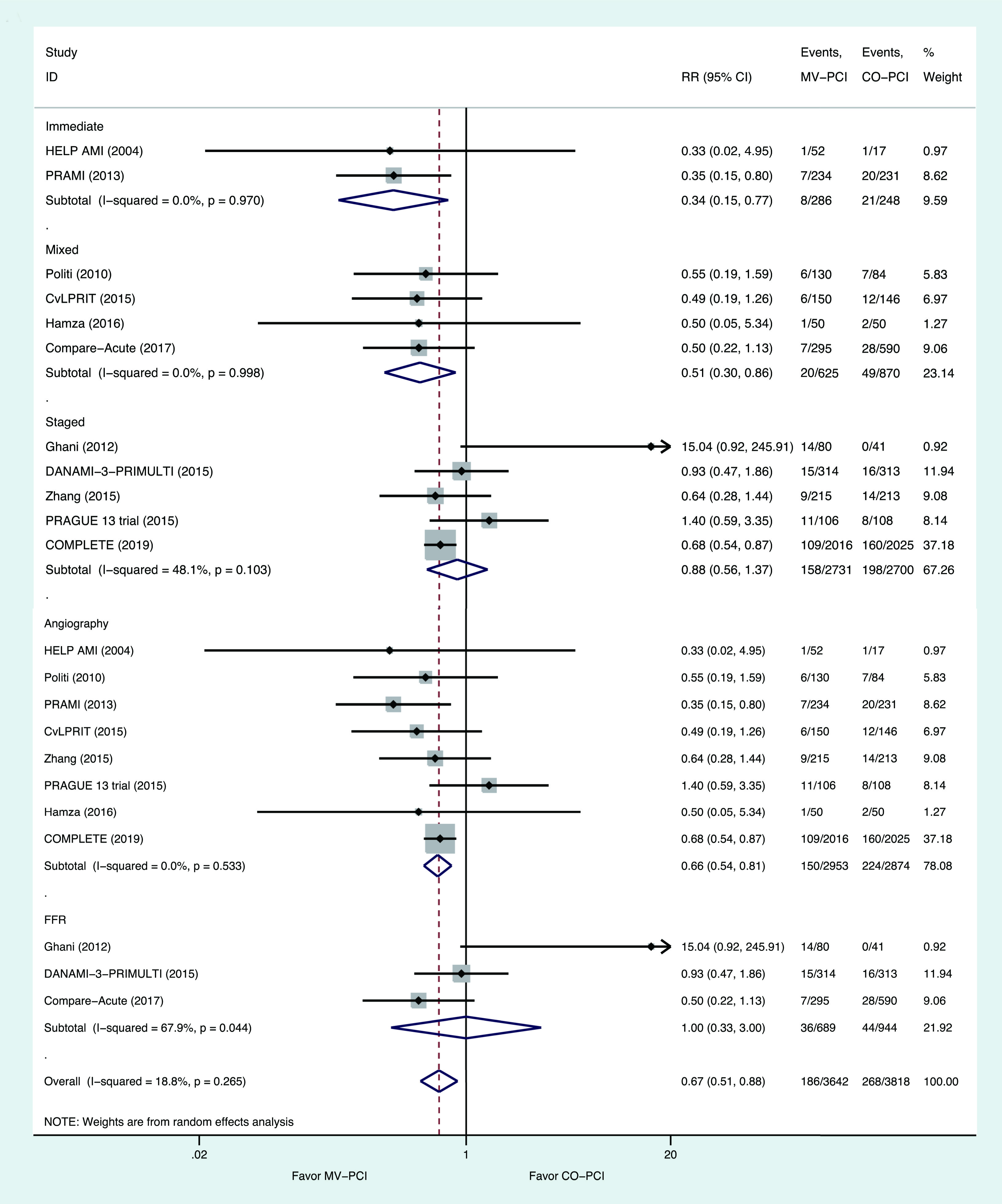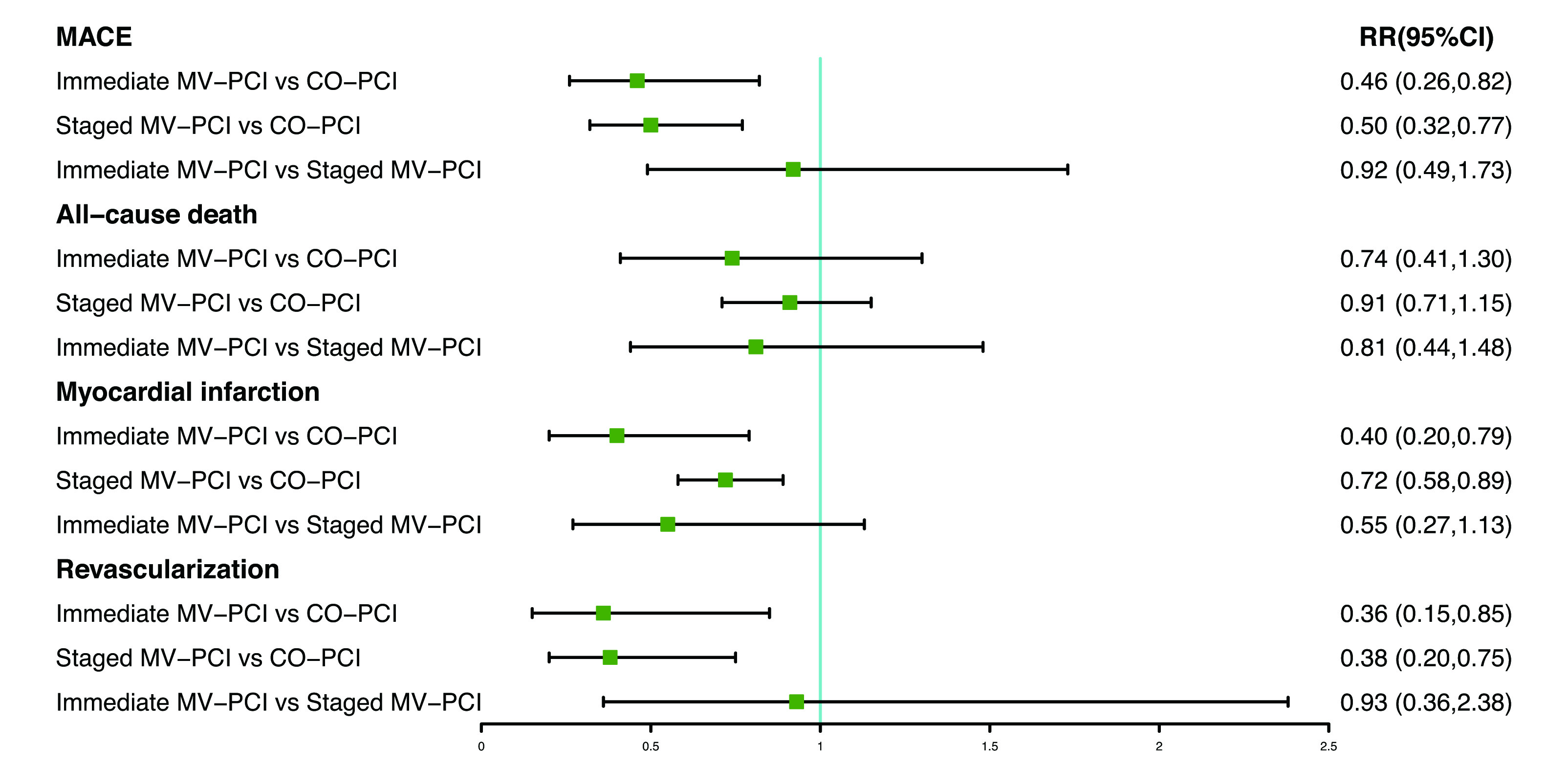Lots of interesting abstracts and cases were submitted for TCTAP 2021 Virtual. Below are accepted ones after thoroughly reviewed by our official reviewers. Don’t miss the opportunity to explore your knowledge and interact with authors as well as virtual participants by sharing your opinion!
TCTAP A-006
Presenter
Mengjin Hu
Authors
Mengjin Hu1, Yuejin Yang1
Affiliation
Fuwai Hospital, China1
View Study Report
TCTAP A-006
Acute Coronary Syndromes (STEMI, NSTE-ACS)
The Optimal Percutaneous Coronary Intervention Strategy for Patients with ST-segment Elevation Myocardial Infarction and Multivessel Coronary Artery Disease: A Pairwise and Network Meta-analysis of Randomized Trials
Mengjin Hu1, Yuejin Yang1
Fuwai Hospital, China1
Background
Recent randomized trials and meta-analysis have suggested that multivessel PCI is associated with better outcomes, however, the option of multivessel PCI strategy is still unknown.
Methods
Trials that randomized patients with STEMI and multivessel coronary artery disease to any combination of the three different revascularization strategies [immediate multivessel PCI, staged multivessel PCI, or culprit-only PCI] were included. Random effect risk ratio (RR) and 95% confidence interval (CI) were conducted. Network meta-analysis was constructed using mixed treatment comparison models, and the three revascularization strategies were compared.
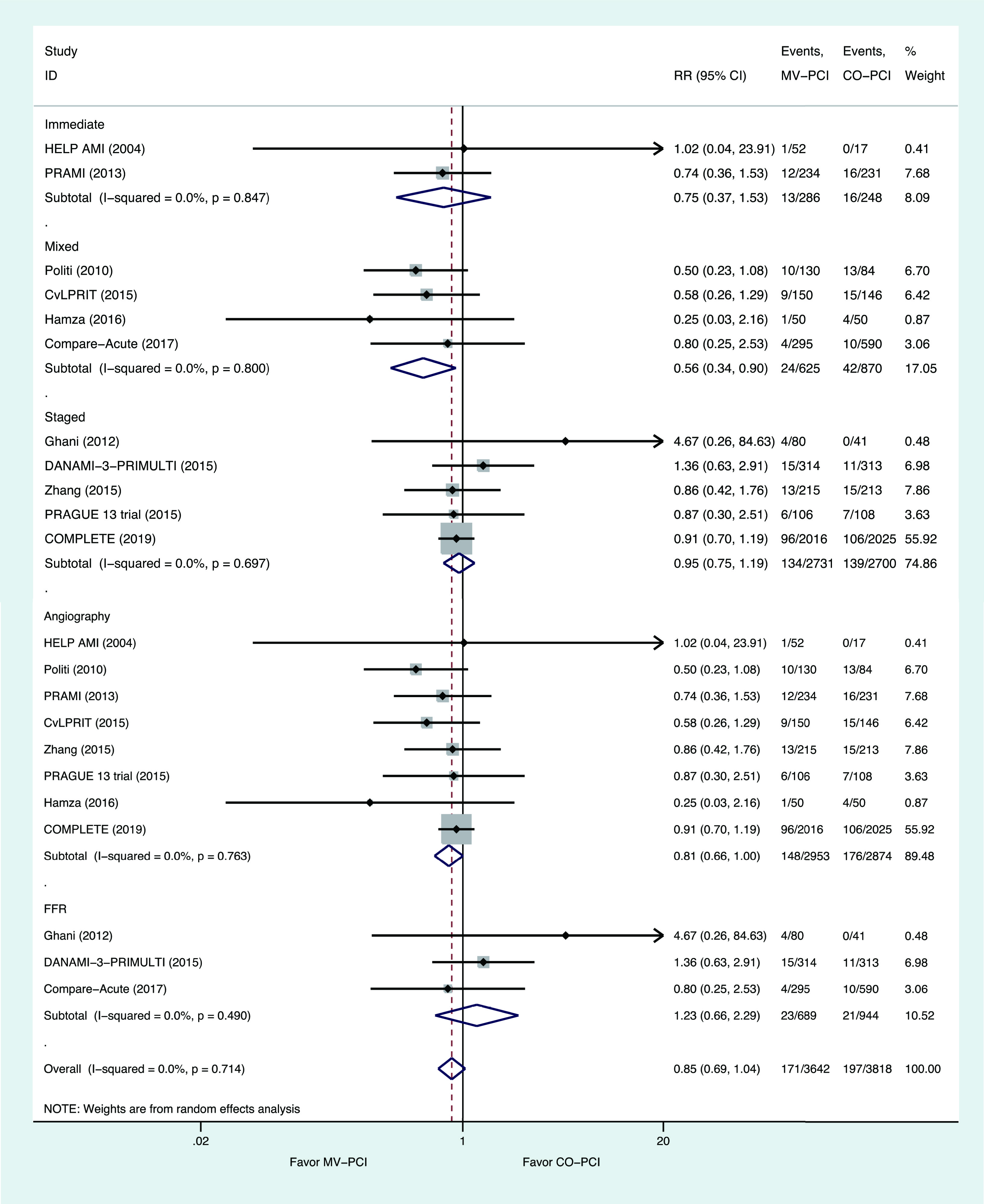
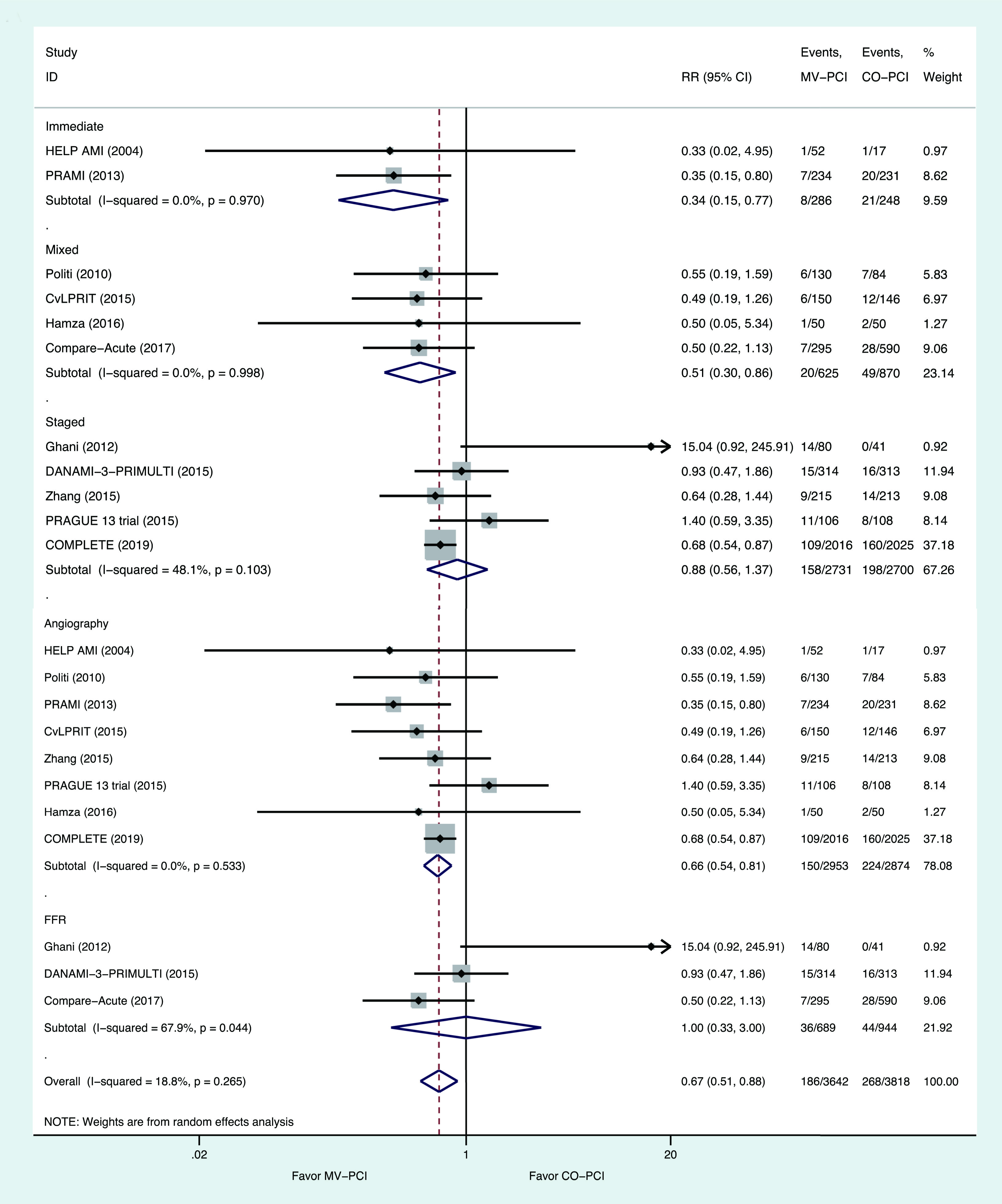
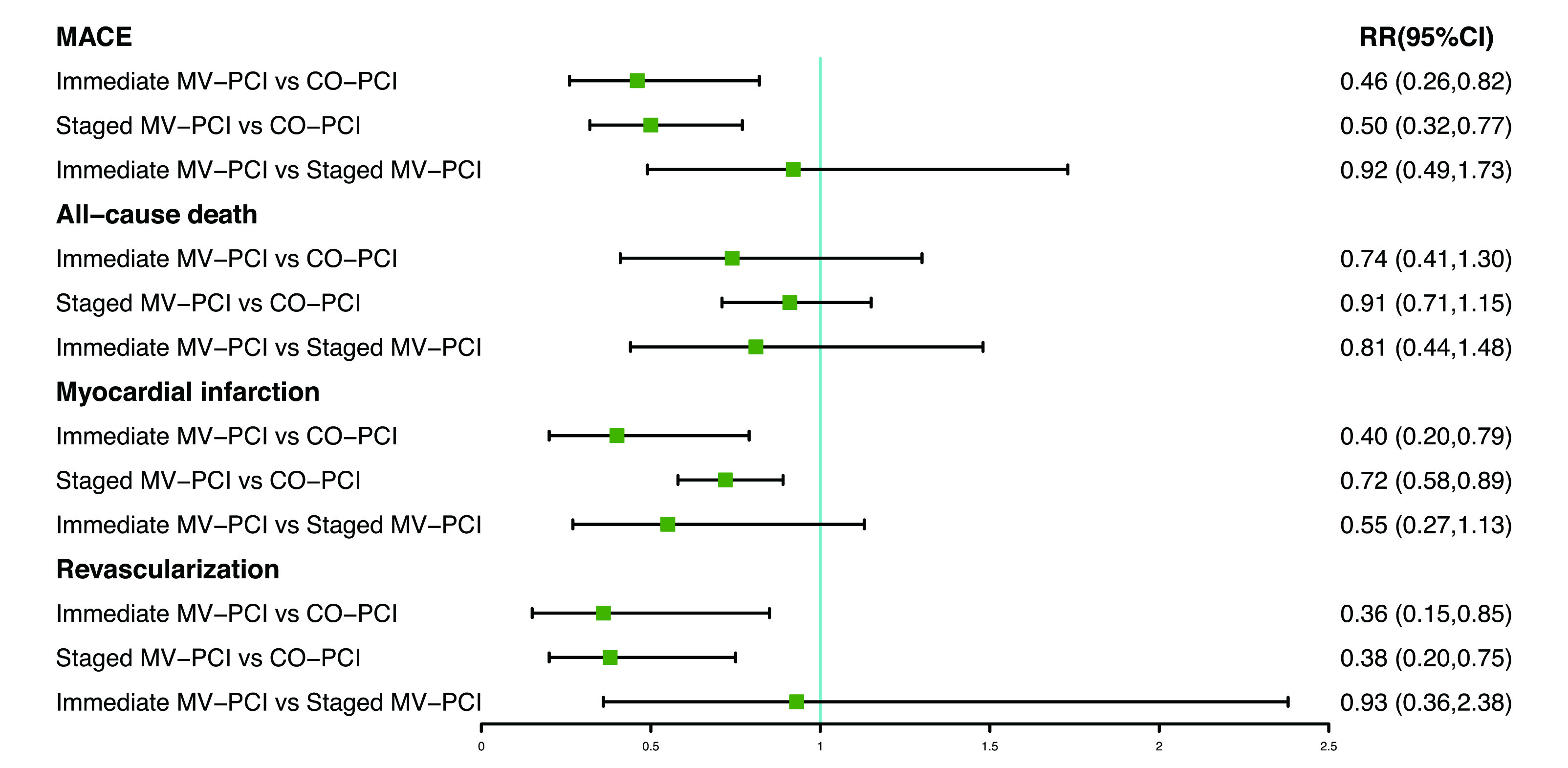



Results
A total of 13 trials with 7627 patients were included. In the pairwise meta-analysis, a multivessel PCI strategy (immediate or staged) was associated with a lower risk of major adverse cardiac events (MACE) (RR: 0.58; 95% CI: 0.45 to 0.74) compared with a culprit-only PCI strategy, which was mainly due to lower risks of myocardial infarction (RR: 0.67; 95% CI: 0.51 to 0.88) and revascularization (RR: 0.38; 95% CI: 0.28 to 0.51). There was also a trend toward a lower risk of all-cause death with a multivessel PCI strategy (RR: 0.85; 95% CI: 0.69 to 1.04). Safety outcomes including major bleeding, renal failure, and stroke were similar between a multivessel PCI strategy versus a culprit-only PCI strategy. The reduction in the risk of MACE, myocardial infarction, and revascularization was observed irrespective of the strategy of multivessel PCI in the mixed treatment model.
